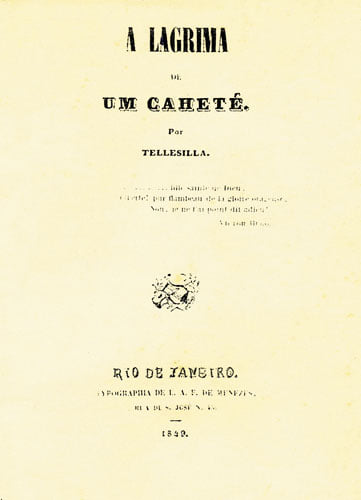ENN New Voices: Recovering Indigenous Andean Philosophy:Interview with Jorge Sanchez Perez12/4/2022 In this episode, Olivia speaks with Jorge Sanchez-Perez, a former post-doctoral fellow in the Extending New Narratives in the History of Philosophy project who is currently an assistant professor in philosophy at the University of Alberta. We discuss Jorge’s post-doctoral research on the Huarochirí manuscript, which is one of the few surviving records of indigenous Andean philosophy in the Quechua language, and talk about the metaphysical ideas Jorge has worked to uncover in the text. Jorge also offers some advice for people interested in studying indigenous philosophy in an academic context that can sometimes be hostile to indigenous methodologies and traditions.
Notes and Further Reading Primary Text Huarochirí Manuscript – available in the original Quechua and English and Spanish translations Figures Discussed Felipe Guaman Poma de Ayala – a Quechua nobleman known for chronicling Andean culture and history from the Incan Imperial perspective Francisco de Ávila – the “extirpator of idolatries” who commissioned the Huarochirí manuscript to help him fight against local indigenous beliefs, and in doing so inadvertently created a record of those same indigenous traditions Inca Garcilaso de la Vega – a half-Incan, half-Spanish author known for his accounts of Inca history and culture Vine Deloria Jr. – a twentieth-century Native American philosopher of education To listen to this episode, please visit our podcast page.
0 Comments
[Originally published on Facebook March 17, 2021]
Today I bring three fragments from Nísia’s poem A Lágrima de um Caeté (Tear of a Caeté). The poem was published in 1849 in Rio de Janeiro, the same year that Revolução Praieira [1] ended. In it, Nísia sings for the oppressed First Natives, who were pictured by Romanticist Brazilian poets as willingly accepting colonization. Clearly, Nísia disagrees with that image. Because of the political instability of that time, and due to the violent resolution of Revolução Praieira by Brazilian Empire [2], there is a parallel between the government that oppressed the First Natives and the government that oppressed the liberals. The poem had two editions (both from 1849) and Nísia signs it as “Tellesilla”, an ancient Greek poet from Argos who was against oppression. “First Natives of Brazil, what are you? Savages? You don’t enjoy your goods anymore… Civilized? No… Your caring tyrants Keep you away from such weapons that have been hurting you Poor Cablocos! You don’t have any degree!... You lost everything, Except the infamous title of coward… * The Caetes’ venerated spirits are avenged! Sadly abandoned, without land, without goods, Blindly following your master’s voice You have lost your purity and traditions. * From Amazonas to Prata, The people are crying: - Enough, terrible monster, Your empire is crumbling! But you, my poor Caete, Listens to the Truth: Go seek the forests, only there You will be free. What do you make of these passages? To me, they are about the loss of identity of a people due to oppression. The “First Natives of Brazil” have lost “everything”. They cannot say who they are, and if they do, it doesn’t matter anymore. Just like the enslaved people. Also, they “have lost their traditions”. The Europeans call them “savage” when they are living in the forests. When they are not, after being brought to the cities and have lost their “purity”, they are called “coward”. Europeans and Brazilians call themselves “civilized” because they fulfill conditions of a “civilized” culture, conditions not created and not consented to by either the First Natives or the enslaved people. In this poem, Nísia avenges the First Natives, the Caetes. She does so to ensure they are not to be forgotten. However, the oppression that took their freedom and identity happens among the same people. The “Empire is crumbling”, Nísia says, and such proposition can be heard from North to South of Brazil (Amazonas River to Prata River). Thus, it seems that she is saying that the same government that oppresses the First Natives and the enslaved people is oppressing its own people. ____ [1] The Revolução Praieira was one of the many revolutions that were happening during the Brazilian Empire (1822-1889). Want to know more? Here is a reliable link that can be translated by Google about the Revolução Praieira: https://brasilescola.uol.com.br/.../revolucao-praieira.htm [2] Dom Pedro I proclaimed the Brazilian independence on September 7th, 1822. The country became an Empire until November 15th, 1889, when a military coup by Marshal Manuel Deodoro da Fonseca happened, making Brazil a republic. Here is a good link from Encyclopaedia Britannica: https://www.britannica.com/place/Brazil/Independence ----- Indígenas do Brasil, o que sois vós? Selvagens? os seus bens já não gozais... Civilizados? não... vossos tiranos Cuidosos vos conservam bem distantes Dessas armas com que ferido tem-vos De sua ilustração, pobres Cablocos! Nenhum grau possuís!... Perdeste tudo, Exceto de covarde o nome infame... * Dos Caetés os manes vingados estão! Em triste abandono, sem Pátria, sem bens, Às cegas seguindo a voz de um senhor Pureza e costumes perdido tu tens!... * [...] Do Amazonas ao Prata O povo lhe está bradando: - Sacia-te monstro atroz, Teu império está finando! Mas tu meu pobre Caeté Escuta a Realidade; Busca as matas, lá somente Gozarás da Liberdade Passages retrieved from: A Lágrima de um Caeté / Nísia Floresta Brasileira Augusta; Org. Constância Lima Duarte. 4. ed. Natal: 1997. 66p. Federal University of Rio Grande do Norte (UFRN): https://www.bing.com/search... Translated by Matheus Iglessias Mazzochi Picture from http://www.projetomemoria.art.br/NisiaFl.../popups/044b.html -MM |
Authors
Jacinta Shrimpton is a PhD student in Philosophy at the University of Sydney. She is co-producer of the ENN New Voices podcast Archives
May 2024
Categories
All
|

 RSS Feed
RSS Feed